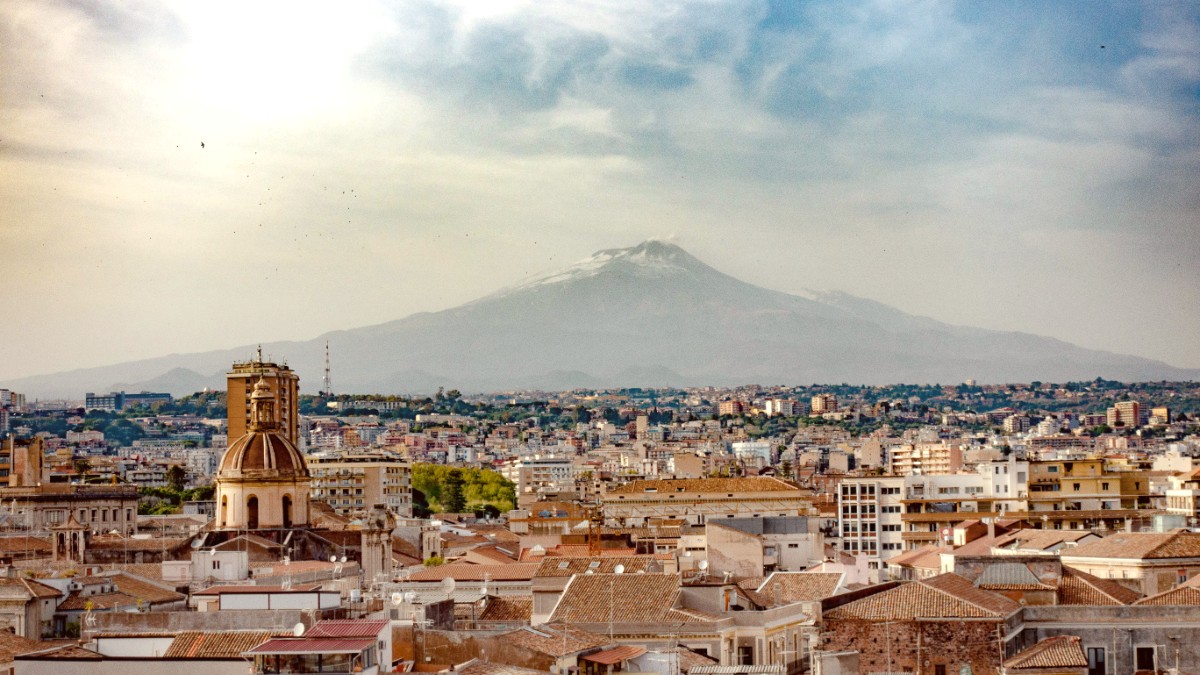
Sicily, Italy
Catania presents different experiences depending on the season, each with its own advantages and considerations. Knowing the climate patterns aids in proper planning.
Climate patterns throughout the year
* Spring (April-May): Temperatures range from 15-25°C (59-77°F). Moderate rainfall occurs, and landscapes burst into bloom. This period presents conditions suitable for sightseeing and hiking.
* Summer (June-August): Hot and dry, with temperatures often reaching 25-35°C (77-95°F) or higher. Humidity remains low, and precipitation is minimal. This is peak beach season.
* Autumn (September-October): Temperatures stay warm, typically 20-30°C (68-86°F). Rainfall decreases towards the end of the season. Swimming remains enjoyable, and conditions are pleasant for exploring.
* Winter (November-March): Mild temperatures, generally 10-15°C (50-59°F). Higher precipitation occurs, with occasional snowfall visible on Mount Etna's peak. Crowds are smaller, making this time suitable for cultural visits.
Winter allows for snow activities like skiing or snowshoeing on the volcano's slopes.
June through September offer the best conditions for swimming and sunbathing at La Playa or along the Cyclops Riviera. The shoulder seasons (April-May, September-October) deliver ideal walking conditions for exploring the city's Baroque streets and Roman ruins.
Volcanic activity may impact air travel.
Spring & Autumn: optimal temperatures. Winter: snow activities.
July & August: very high temperatures. Hydration is .
June-August: higher costs, increased crowds.
June-September: best for swimming and sunbathing.
November-March: limited daylight, some closures.
April-May, Sep-Oct: fewer crowds, pleasant weather.
Shoulder seasons present ideal walking conditions for city tours.
Coastal establishments may have reduced hours in April and late October.
Italy is part of the Schengen Area, which simplifies entry for many nationalities. Citizens of many non-EU/EEA countries must obtain a Schengen visa for stays up to 90 days within any 180-day period. Apply at the Italian embassy or consulate in your country of residence before travel.
Citizens of countries like the United States, Canada, Australia, New Zealand, the United Kingdom, and many others do not need a visa for stays up to 90 days for tourism or business purposes. Your passport serves as your entry document.
Valid for at least three months beyond departure from Schengen Area.
Mandatory for visa applicants, coverage of €30,000 for medical emergencies.
Onward or return flight tickets may be requested.
Hotel bookings or invitation letter.
Evidence to cover your stay.
The Euro (€) is the currency in Italy. Effective budgeting enhances your travel enjoyment.
The Euro (€) is the official currency. ATMs are widely available for cash access. Most establishments accept major credit and debit cards. Smaller businesses or street vendors often prefer cash. Exchange offices exist but offer less favorable rates than ATM withdrawals or card purchases.
Your daily expenses vary by travel style. Plan according to your preferences.
Italy has a public healthcare system (SSN). EU citizens use EHIC. Non-EU citizens should have travel insurance. Hospitals are well-equipped. Pharmacies (Farmacia) are identifiable by a green cross sign.
Memorize these numbers for emergencies in Italy.
Single European Emergency Number: 112
This number connects you to police (Carabinieri), ambulance (Emergenza Sanitaria), and fire services (Vigili del Fuoco). It is the most important number to remember.
Use 112 for all general emergencies: police, ambulance, or fire services. It streamlines emergency communication in Italy.
Operates nationwide and is accessible from any phone.
Avoid non-emergency calls; misuse can result in penalties.
While 911 is recognized internationally, remember to use 112 in Italy. It connects you directly to local emergency services.
Good for quick recall, but not the active number in Italy.
Dialing 911 in Italy will NOT connect you to local emergency services.
When making an emergency call, state your location clearly (address, landmarks), the nature of the emergency, and if anyone is injured. Remain calm and speak clearly.
Provide concise and accurate information for quick response.
Do not hang up until instructed by the emergency operator.
| Category | Type/Service | Price Range (EUR) |
|---|---|---|
| Accommodation (per night) | Hostel dormitory / B&B / Luxury Hotel | €20-€40 / €60-€120 / €150-€400+ |
| Meals | Street food / Casual restaurant / Fine dining | €2-€5 / €10-€20 / €70+ |
| Transportation | Single bus/metro ticket / Daily pass / Airport bus | €1.00-€1.20 / €2.50-€3.50 / €4.00 |
Access to medical assistance and knowledge of local risks contribute to a secure journey.
Italy operates a public healthcare system, Servizio Sanitario Nazionale (SSN).
EU citizens use their European Health Insurance Card for medically necessary emergency treatment.
Look for "Farmacia" (green cross sign) for advice and non-prescription medication.
Mount Etna remains an active volcano. Eruptions are possible.
Volcanic activity rarely poses a direct threat to Catania itself, but ashfall is common and can disrupt air travel. Tour operators follow strict safety protocols during excursions.
Sicily lies in an active seismic zone. Minor tremors are not uncommon. Catania's buildings are constructed to withstand seismic activity. Severe heatwaves can occur in summer; staying hydrated and seeking air-conditioned spaces is advisable.
Check local news for any specific warnings.
A basic First aid kit with bandages, antiseptic wipes, pain relievers (Ibuprofen/Acetaminophen), and Anti-diarrhea medication. Consider Adventure Medical Kits for comprehensive options.
High SPF Sunscreen, Sunglasses, and a Wide-brimmed hat are required for intense sun exposure.
Secure belongings with Pacsafe anti-theft bags or a Money belt for valuables.
Stay aware of your surroundings, especially in crowded tourist areas and during peak market times. Avoid displaying large amounts of cash or expensive items.